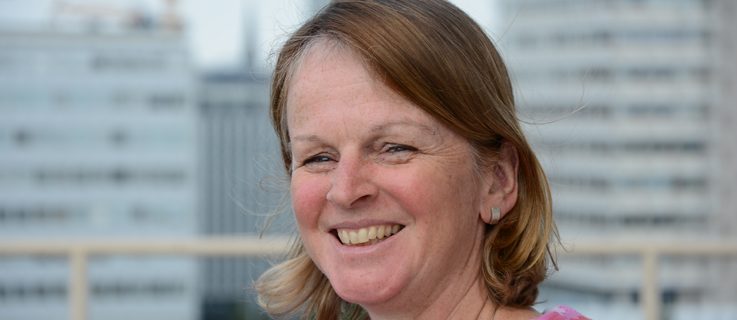Responses to the Brexit
Rachel Launay: “Create opportunities, build connections, engender trust”

We asked representatives of European cultural institutions what they think about Brexit. Rachel Launay, Country Director of the British Council Germany, expects British Cultural institutions to approach their work in the cultural and educational space with renewed vigour and commitment.
How did you receive news of the results of British EU referendum on 24 June?
I woke up to the news of the result on Friday morning while on holiday with my family. It certainly gave us plenty to talk about over breakfast and for the rest of the day. My son is 22 and hearing how the younger generation feel about the ‘leave’ vote highlighted the changes that it could mean for them in the future.
How would you assess the overall reaction in London and in the UK?
As I have not been in the UK since the referendum result I have been focusing very much on the reaction in Berlin and Germany.
How would you assess the overall reaction in Berlin and in Germany?
Partners and friends of the British Council in Berlin have been incredibly supportive to us since the result was published. I have read and heard that the public in Germany is very taken aback by the result and is trying to understand the underlying reasons why UK voted to leave the EU.
Prior to the EU referendum, many eminent cultural figures in the UK and beyond spoke out in favour of the “Remain” side. Which changes would you expect with regards to the relationship of British cultural institution to the rest of Europe, if Britain actually left the EU?
I would expect British Cultural institutions to not only continue their work in the cultural and educational space but to approach it with renewed vigour and commitment, just as we are doing so. The British Council has been working with our European neighbours for over eighty years and we will continue to do so. We have always believed in the strength of engaging with multilateral institutions and we will find ways to continue to work in partnership with Germany and other European countries and with EU institutions to create opportunities, build connections and engender trust.
What would you expect the national cultural institutes such as the Goethe-Institut and the British Council to do in reaction to the outcome of the ‘Brexit referendum’?
At the British Council we believe that the cultural connection between the UK and other European nations will remain vital, and can help to build confidence and trust in whatever political and economic settlement is finally reached. We have reiterated clearly to our partners and customers our commitment to our continued presence in Germany and Europe and we will continue to engage with them to deliver our cultural relations programmes, without wavering.
In the wake of the EU referendum we knew we would want to talk to people about our shared cultural future, irrespective of the result, so we asked key figures from the worlds of culture, politics and science to reflect on the UK’s cultural relationship with Europe. This series of essays (including a wonderful piece from Johannes Ebert, Secretary-General of the Goethe-Institut) is called The Morning After and gives me a fundamental sense of hope, optimism and strength. I am stirred by so much in these inspiring contributions and I will finish with a quote from the foreword that I find both uplifting and moving:
‘Like weather fronts and migrating swallows, culture and ideas are not stopped by border posts or passport regulations. That should be a cause for celebration, and a comfort at a time of great uncertainty and change. Whatever course political events may take over the coming months
and years, Europe will remain a place of cultural exchange for all of us, as it has been for millennia.’
(Rebecca Walton, Regional Director Europe, British Council)